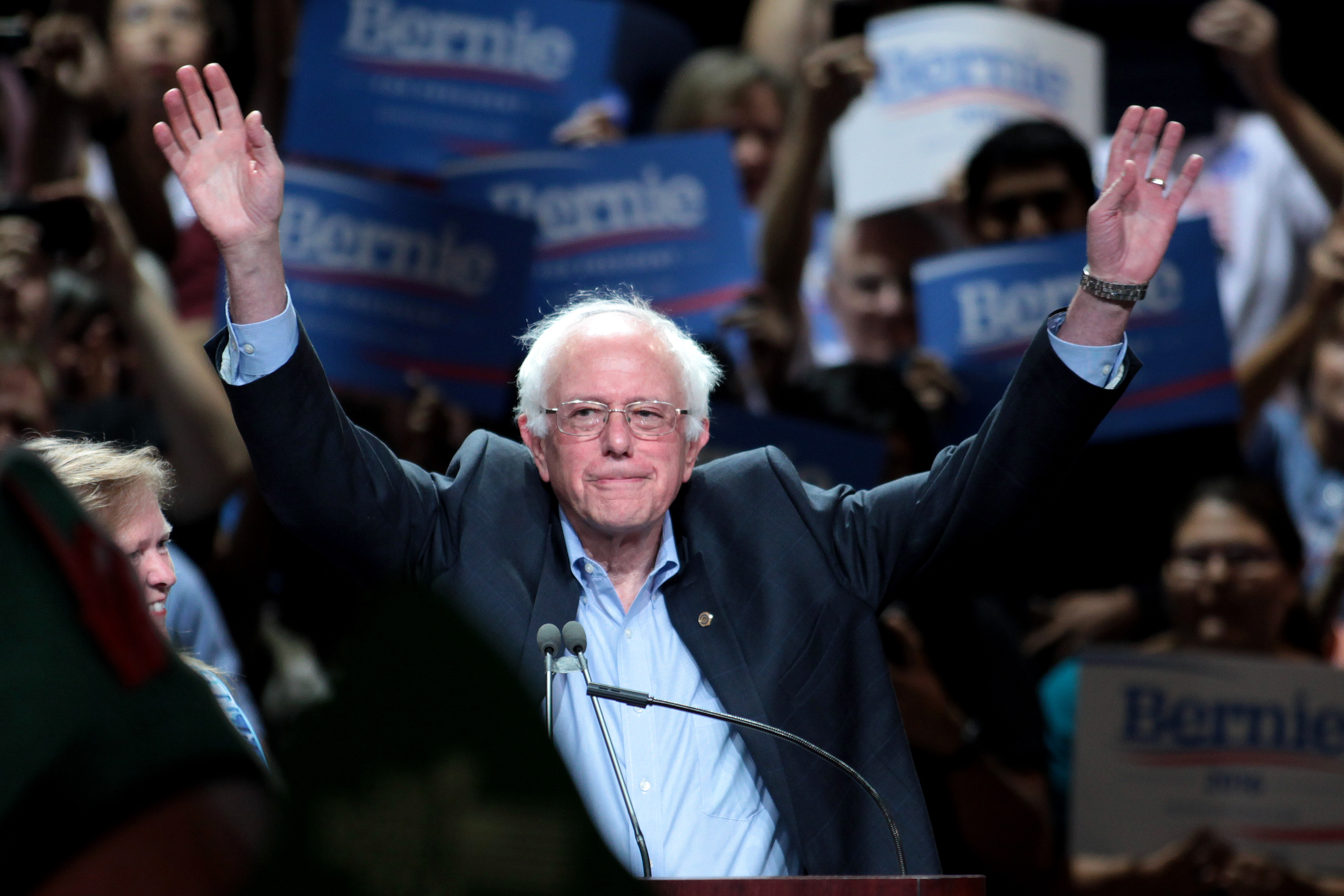The inevitable is here. Donald Trump has secured the Republican nomination for the president of the United States. Meanwhile, the Democratic primary race still goes on. With 2,383 delegates needed to clinch the Democratic nomination, Hillary Clinton has 2,312 delegates and Bernie Sanders has 1,545. Even if Clinton does not win California’s Democratic primary June 7, she can secure the nomination by accumulating 71 more delegates. For the past couple of months, Sanders has claimed that Clinton is leading because the system is “rigged” against him. However, on Sunday, Sanders changed his tune and is now claiming that the system isn’t rigged but “dumb.”
While it is true that the electoral process is unfair, Sanders has benefited from the system because he has won more states with caucuses. However, Sanders has had difficulty in states with primaries, winning only 10 of the 34 contests. This is why Clinton is leading Sanders in delegates. A central complaint by the Sanders campaign is the difference between open and closed primaries. In an open primary, any registered voter can vote for a candidate regardless of party affiliation. Conversely, voters in closed primaries can only pick a candidate in their political party. While this is certainly unfair and undemocratic, it is hard to believe how a career politician was not aware of the different states that have open and closed primaries. In running for office, it is absolutely imperative that one knows the rules of the game. If a candidate doesn’t, it can lead to doom, as in the case of Sanders.
This was made evident when chaos erupted at the Nevada Democratic State Convention. In February, Clinton won the Nevada Caucus. Nevada has 43 delegates, but due to Nevada’s complicated rules of allocating delegates, Clinton was awarded 13 and Sanders 10 based on caucus results in four congressional districts. The remaining 12 are delivered at the state party convention; five are ‘party leader and elected official’ delegates and seven ‘at-large’ delegates awarded proportionally,” according to Politifact. Prior to the convention, the Sanders campaign elected more people to the convention than Clinton, thus it became more likely that Sanders would gain more delegates than Clinton. However, in the final vote, Clinton was awarded 1,695 and Sanders 1,662 primarily because 56 of Sanders’ delegates were unable to cast their votes because they weren’t registered as Democrats by the May 1 deadline.
In addition to complaining about the rules in the electoral process, Sanders has effectively declared war on the Democratic Party. This is not the most politically astute strategy when one is seeking the nomination for the Democratic Party or, at the very least, if one hopes to make the platform of the Democratic Party more progressive. Sanders has openly criticized the Democratic National Convention and its chair, Rep. Debbie Wasserman Schultz. Sanders claims that the DNC and Schultz have disproportionately favored Clinton. He said, if he were president, he would not reappoint Schultz and instead endorse her opponent for her congressional seat. In addition, Sanders requested the removal of former Rep. Barney Frank and Connecticut Gov. Daniel Malloy, the co-chairs of the DNC’s standing committee on rules, because they are Clinton’s “aggressive attack surrogates,” whose criticism has “gone beyond dispassionate ideological disagreement and have exposed a deeper professional, political and personal hostility toward the senator and his campaign,” according to The Washington Post.
While it is highly unlikely that Sanders will secure the Democratic nomination, he has a legitimate chance of influencing the Democratic Party’s platform for the convention in Philadelphia. The DNC allowed Sanders to pick five members for the platform committee of the DNC. Sanders selected James Zogby, a Pro-Palestinian rights activist, as well as Cornel West, Rep. Keith Ellison (D-Minn.), environmentalist Bill McKibben and Native American activist Deborah Parker. If Sanders truly wants to change the Democratic Party, he must be politically astute and utilize the system for his gain.
Leslie McNamara is a public policy graduate student specializing in health policy. She can be reached at lamcnamar@gmail.com.



